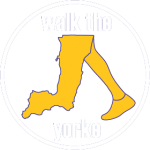When was the Bush Camping Permit fee increased?
- The price rise was chosen by Council’s Elected Members at the August Ordinary Council meeting. We understand some people will be disappointed with this decision. Although each Elected Member may have had different reasons for the way they voted on this matter, the most common reasons are summarised in these Frequent Asked Questions.
Why was the Bush Camping Permit increased?
- Bush camping has always run at a loss, and therefore been heavily subsidised by Council.
- A significant increase in campers has caused environmental damage to our coastline. To help counter this, Council is in the process of installing new and improved toilets so all sites will have toilets (except two small ones) and has budgeted for an extra Ranger to make sure people are doing the right thing by our environment.
- Yorke Peninsula Council region has a relatively small population and ratepayer base. Thus, the permit increase will mean less reliance on ratepayer subsidy and more on ‘user pays’. Ratepayers who do camp still enjoy a 50% reduction on permit fees for weekly, monthly and annual permits.
- Increasing costs include: Rangers’ time, rising fuel costs (500km of coastline to cover), rubbish removal, cleaning up of campgrounds, fence building, weed removal, revegetation, administration (tourist enquiries, brochures etc.), toilet installation, toilet maintenance and more.
Why was the Bush Camping Permit increase so steep?
- Although this price rise seems steep, it is the first rise in the history of Yorke Peninsula Council Bush Camping.
Why don’t all the Bush Campgrounds have toilets?
- By early 2023 toilets will be installed at all campgrounds except two (Foul Bay Boat Ramp and Tiparra):https://www.visityorkepeninsula.com.au/camping/campground-locations
- Although toilets will be available in most campgrounds soon, visitors are still encouraged to be self-contained. In recent years, maintenance and environmental issues have increased substantially, with regular occurrences of toilet paper waste in the dunes, used nappies dumped in the campground and cassettes/port-a-loos being emptied into the ocean. This all needs to be cleaned up and/or managed by someone.
Please consider the environment you enjoy while camping and ‘leave no trace’ for others to find. Campers should never bury toilet paper or other leavings in the fragile dunes or campgrounds.
- For those visitors that prefer more comprehensive facilities (running water, flushing toilets, showers, etc.) we recommend staying in one of the many beautiful Yorke Peninsula caravan parks.
Why aren’t there flushing toilets?
- Insufficient water supply.
Where are the bins?
- Only 2 campgrounds (Gleesons Landing and Burners Beach) have bin banks. These were established well before the current Bush Camping system and have been allowed to remain. The other campgrounds are serviced by numerous bin banks and skip bins placed seasonally. A up-to-date list can be found at https://www.visityorkepeninsula.com.au/camping-rubbish.
Why aren’t there bins in all campgrounds?
- Bins attract rodents, feral cats and foxes – which are unwelcomed visitors in campgrounds and the fragile coastal environment.
- It has also been found that when bins are provided at the campground, rubbish piles up next to the bins and often ends up scattered along the shore and in the ocean. The rubbish left behind damages the environment, poses danger to our native animals and is unpleasant for subsequent visitors.
- Thus, to protect our coastline and campgrounds, most bin facilities have been located away from the coastline. The chosen rubbish collection points locations are also accessible by service vehicles, making collection possible and more frequent, please refer to https://www.visityorkepeninsula.com.au/camping-rubbish.
Why are the roads dirt and not bitumen?
- The ‘bush’ part of the name was carefully considered. Yorke Peninsula is a dirt road community for the most part, and the campgrounds were not created with facilities already in place. Road maintenance is already a substantial part of the Council budget – with 3890 km of roads to maintain. For visitors who prefer a smoother access, we recommend they stay at one of the many Yorke Peninsula caravan parks.
Why isn’t there power provided at the campgrounds?
- The bush campgrounds do not have access to the power grid. We recommend caravan parks for visitors who prefer powered sites.
What are the bush camping fees used for?
- Rangers
- Rubbish removal and cleaning up of campgrounds
- Weed control
- Fencing and revegetation necessary to prevent access to areas such as unauthorised tracks and fragile dunes. These areas degrade when visitors walk or drive on them, creating shifting sand that smothers the vegetation that holds the sand in place – causing greater and greater erosion.
- Administration
- Toilet installation and maintenance. Each composting toilet costs approximately $40,000 to purchase and install according to strict guidelines required for being located so close to the coast. Maintenance and cleaning are additional costs and can be expensive considering the distance that needs to be covered by the cleaners.



